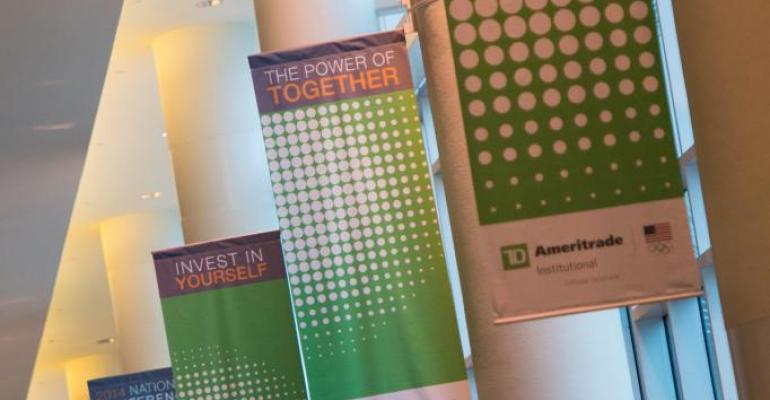The U.S. economic recovery is even stronger than most give it credit for, TD Bank’s top economist said during TD Ameritrade Institutional’s advisor conference in Orlando, Florida today.
“We’ll see the global economy continue to gain momentum, but what’s interesting is where it’s coming from,” he said. While the early part of the recovery was fueled by emerging markets, those are the same spots that are now “where the anxiety is.” The recent market pullback was largely reaction to bad economic news on the emerging market front.
Countries like Argentina, which recently devalued their currency, and Turkey, which surprised the world with a significant rise in interest rates earlier this month, “were fueling growth on cheap foreign money.”
But are we on the cusp of another 1997 Asian financial crisis? “If markets are rational, no,” Alexander said. But given markets are more often driven, at least in the short term, on sentiment, Alexander admits a market overreaction based on emerging market dynamics is “what keeps me up at night.”
Instead, it’s the advanced economies that will drive growth. Even with Europe still moving against headwinds, there are opportunities for those willing to “pick their spots.”
Most investors are likely underestimating the recovery, said Alexander. The average rate of growth in the U.S. in the second half of 2013 was 4 percent, factoring out the effect of the government shutdown. Housing values are up, and more importantly, the pace of new construction is slower than demographic growth. Consumers are feeling wealthier. The energy sector, while not the largest component of U.S. GDP, is the fastest growing.
The sticking point in the growth story is corporations sitting on cash instead of investing it, a factor Alexander blames on “the policy environment.” When growth gets up to a sustainable three percent, Alexander predicts, corporations will begin to spend.
Until then, continued high real unemployment will keep the Federal Reserve from raising rates. While the official unemployment rate is getting close to the Federal Reserve’s threshold of 6.5 percent, the real unemployment rate, including discouraged workers and the underemployed, is above 11 percent.
“I don’t think the Fed will raise interest rates until the end of 2015,” Alexander predicts. Bond yield’s may tick up 50 basis points this year, but the bear market in fixed income will continue. Gold, already dramatically slammed last year, also has further to fall, as inflation seems to be off the radar for the time being.




